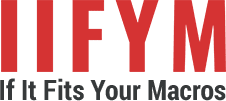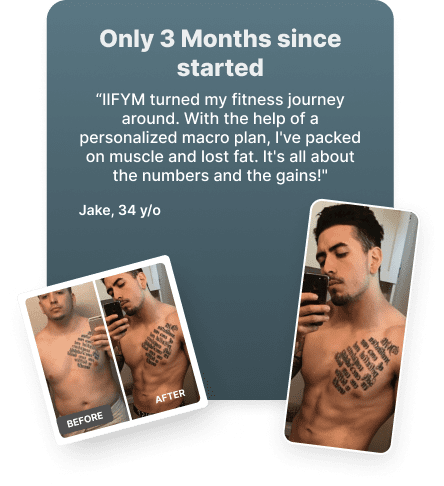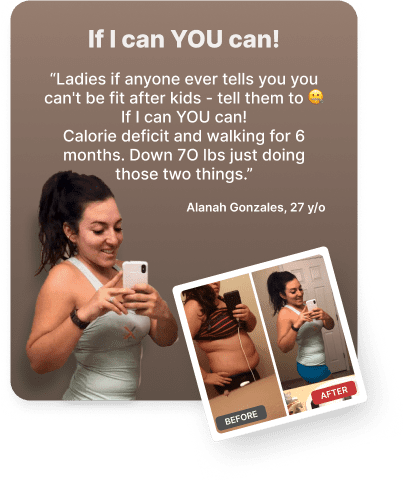People ask me all the time:
Anthony, is a macro tracker actually worth it?
They’re usually overwhelmed. They’ve seen a hundred different fitness apps. Everyone on Instagram is talking about tracking macros. Some swear by it. Others say it’s obsessive.
And then there’s that nagging thought: Do I really need to track every gram of protein to lose a few pounds?
Let me be straight with you.
You don’t have to track macros forever.
But if you’ve struggled with fat loss, lean muscle gain, or just figuring out what the heck “eating healthy” even means then yes, a macro tracker is absolutely worth it.
Especially when you use the right one.
When I created IIFYM (If It Fits Your Macros) and later built Macro Max, it wasn’t to make people count numbers all day. It was to give people clarity. Simplicity. A way to understand food, instead of fighting with it.
Because let’s face it most people are just guessing.
Guessing their portions. Guessing what “eating clean” means. Guessing why they aren’t losing fat even though they “barely eat anything.”
That’s where a macro tracker can change everything.
It shows you what’s really happening no guilt, no judgment. Just facts, feedback, and a framework that works.
So in this article, I’ll walk you through what macro tracking is, when it’s helpful, when it’s not, and how to use it without driving yourself crazy. I’ll even break down the best macro tracking apps out there including the one I built, Macro Max.
Let’s dig in.
What Does a Macro Tracker Actually Do?
Let’s break this down simply.
A macro tracker is a tool that helps you keep track of your macronutrient intake carbs, protein, and fat. These three nutrients are what fuel your body, affect how you look, feel, and perform.
When you open a macro tracker app, here’s what it usually does:
- Calculates how many grams of each macro you need daily
- Lets you log food to see how much you’ve eaten
- Gives you a running total of your intake as you go
- Tells you how close you are to hitting your daily targets
That’s it. It’s not magic. It’s just awareness but that awareness is powerful.
What Are Macros, Anyway?
- Carbohydrates give you energy. Think fruit, rice, oats, bread.
- Protein helps build and repair muscle. Think chicken, eggs, whey, beans.
- Fats support hormones and satiety. Think nuts, oils, avocado, salmon.
A good macro tracker will also show you calories and sometimes even micronutrients like vitamins and minerals.
How Does It Know What Your Targets Should Be?
Most apps use the Mifflin-St Jeor equation to estimate your calorie needs based on your:
- Age
- Weight
- Height
- Gender
- Activity level
- Goals (fat loss, maintenance, muscle gain)
Once it has that number, it splits your calories into macros based on your goal.
Let’s say you want to lose fat. Your macro tracker may set you up with something like:
- 40% protein
- 35% carbs
- 25% fat
Or maybe you’re doing keto, so it shifts you to 70% fat, 25% protein, 5% carbs.
The point is, you don’t have to do this math in your head. The app handles it.
Benefits of Tracking Macros (Backed by Science & Experience)
I’ve worked with thousands of people through IIFYM. If there’s one thing I’ve seen over and over, it’s this:
The moment someone starts tracking macros, they realize they’ve been guessing wrong for years.
Too much fat, not enough protein. Way more carbs than they thought. Skipping meals, then overeating at night. Sound familiar?
Here’s why tracking macros is one of the most effective tools for changing that.
Portion-Size Awareness
You don’t realize how easy it is to go over your calorie needs until you weigh peanut butter once. Tracking teaches you:
- What a real serving looks like
- How to read food labels
- How much you’re actually eating
That awareness alone can shift everything.
Balanced Intake, Better Results
Whether your goal is fat loss, muscle gain, or recomposition, macro tracking gives you structure.
- Creates a calorie deficit for weight loss
- Supports lean muscle in a calorie surplus
- Optimizes body composition without cutting food groups
You stop chasing low-carb or low-fat fads. You start eating with balance.
Food Education That Sticks
This isn’t about perfection. It’s about learning how to eat for your goals.
You’ll discover:
- Which foods keep you full
- Where hidden sugar sneaks in
- Why protein is the real MVP of fat loss
- How carbs actually fuel your workouts
And no, you don’t have to give up pizza or chocolate. That’s the beauty of IIFYM. If it fits your macros, it fits your plan.
Sustainable, Not Restrictive
Unlike crash diets, macro tracking is flexible. It adapts to your lifestyle. It lets you:
- Eat out and still hit your goals
- Enjoy family dinners without stress
- Make room for treats without guilt
In fact, flexible macro tracking has been linked to better long-term success in weight management. (Ghelani et al., 2020, Islam et al., 2020)
Real-Time Feedback and Progress
You don’t have to wonder if today was a “good” food day. You’ll know.
With apps like Macro Max , you get instant feedback on:
- Daily macro intake
- Progress toward goals
- Areas to improve
You see the data. You make better decisions. That’s how results happen.
But Is It Necessary? (When You Should Track and When You Shouldn’t)
Let me be honest with you not everyone needs to track macros all the time.
You can make progress without it. But depending on where you’re starting from and what your goals are, it can still be one of the most effective tools out there.
Here’s how I break it down for clients.
When Macro Tracking Is Worth It
Tracking your macros is worth it if:
- You’re trying to lose fat and nothing’s working
- You’re eating “healthy” but not seeing results
- You want to build muscle without gaining fat
- You’re getting serious about body composition
- You’ve hit a plateau and need clarity
- You’re prepping for an event or photoshoot
- You want to understand your food intake at a deeper level
In these cases, tracking can feel like flipping on a light switch. You stop guessing and start making real progress.
It’s also especially helpful for people managing conditions like:
- Diabetes
- PCOS
- Kidney disease
- Food sensitivities or specific nutrient needs
With Macro Max, you can even adjust your macros for low-carb, keto, or higher-protein needs depending on your health situation.
When It Might Not Be Worth It (Right Now)
There are also times when tracking might not be the best move:
- You’re already consistently eating nutrient-dense meals
- You have a history of disordered eating or food anxiety
- You’re experiencing burnout or stress around food
- You just need a break from structure
If tracking makes you feel overwhelmed or obsessive, it’s okay to pause. Health isn’t only physical it’s mental, too.
You can always come back to tracking later, or even use a flexible approach with lighter structure.
The Psychology of Macro Tracking: Does It Help or Hurt?
One thing people rarely talk about is the mental side of tracking. And as someone who’s coached thousands through IIFYM, I’ve seen it from both angles.
Some people thrive with structure. Others get overwhelmed.
Let’s talk about both sides.
When Tracking Helps
For many, a macro tracker provides structure and peace of mind. It turns vague food advice into clear steps:
- You feel in control of what you eat
- You get real-time feedback and daily wins
- You stop second-guessing every food choice
- You actually learn how food fuels your body
It also creates what I call “eye-opening awareness.” You start noticing:
- How little protein you’ve been eating
- How big your portions actually are
- How easy it is to overeat oils, nuts, dressings
That kind of clarity is empowering. It builds confidence.
Common Criticisms of Macro Tracking (Let’s Address Them)
If you’ve heard people say things like “macro tracking is obsessive” or “it’s too much work,” you’re not alone. There are valid concerns. So let’s address them one by one.
1. “It’s too time-consuming”
Sure, it can be. Especially with clunky apps.
But with Macro Max, we designed the workflow to be fast and smooth. You can:
- Log a full meal in under 20 seconds
- Use barcode scanning or quick-add
- Copy and paste meals across days
- Save go-to meals and recipes
Once you set it up, it becomes second nature.
2. “It makes me obsessive about food”
Tracking should feel helpful not stressful.
That’s why we always coach people to:
- Aim for progress, not perfection
- Take breaks when needed
- Use it as an educational tool, not a diet forever
If it ever starts feeling like a burden, pause and reset. You’re in charge.
3. “You can still eat junk and hit your macros”
That’s technically true. It’s also a huge misconception.
Yes, you could hit your macros with ice cream and cereal. But once you start tracking, you’ll see how nutrient-poor choices make it hard to feel full and energized.
So you naturally start choosing better foods not because you have to, but because you want to feel good.
4. “It ignores micronutrients”
This one’s fair some apps barely touch micronutrients.
That’s why we’ve made sure Macro Max tracks more than just carbs, protein, and fat. You’ll get visibility into fiber, vitamins, minerals, and even water intake, too.
Health isn’t just about macros. But tracking them is a solid foundation to build from.
Do You Really Need to Track Macros to Lose Fat?
The short answer? No, you don’t need to track macros to lose fat. But it absolutely helps especially if you’ve tried other things and keep hitting walls.
Here’s the truth:
Fat loss comes down to being in a calorie deficit. But knowing how many calories you’re eating is nearly impossible without tracking or at least having years of experience with portion control.
If you’re not seeing progress, here’s what usually goes wrong:
- Underestimating calories (even with “healthy” foods)
- Not eating enough protein to preserve muscle
- Overeating small snacks that add up over time
- Guessing portions instead of measuring for accuracy
Tracking macros helps solve all of that. It creates awareness, structure, and consistency three things most people lack when they plateau.
In fact, studies show that people using macro or calorie tracking apps are significantly more successful with fat loss and maintenance. (Ghelani et al., 2020, Islam et al., 2020)
But remember: tracking isn’t forever.
Use it to build the skill of awareness. Over time, you’ll be able to “eyeball” portions, recognize balanced meals, and maintain your progress without relying on the app every day.
That’s the kind of long-term change we aim for with IIFYM and why we built Macro Max to support both short-term structure and long-term flexibility.
How the Top Macro Trackers Stack Up (And Why We Built Our Own)
You’ve got a lot of choices when it comes to macro tracking apps. I’ve tested them all. Some are decent. A few are solid. But none quite nailed the balance of speed, accuracy, and flexibility, so we built Macro Max to fill that gap.
Here’s how it compares to some of the most popular apps:
| Feature | Macro Max | MyFitnessPal | Cronometer | MacroFactor | RP Diet Coach |
| Verified food database | ✅ Yes | ✅ Yes | ✅ Yes | ✅ Yes | ❌ Limited |
| AI-based macro suggestions | ✅ Yes | ❌ No | ❌ No | ✅ Yes | ✅ Yes |
| Adaptive calorie adjustments | ✅ Yes | ❌ No | ❌ No | ✅ Yes | ✅ Yes |
| Barcode & label scanner | ✅ Yes | ✅ Yes | ✅ Yes | ✅ Yes | ❌ No |
| Meal suggestions | ✅ Yes | ❌ No | ❌ No | ❌ No | ✅ Yes |
| Custom macro plans | ✅ Yes | ✅ Yes | ✅ Yes | ✅ Yes | ✅ Yes |
| Free version available | ✅ Yes | ✅ Yes | ✅ Yes | ❌ No | ❌ No |
| Ad-free interface | ✅ Yes | ❌ No | ✅ Yes | ✅ Yes | ✅ Yes |
| Beginner friendly | ✅ Very | ✅ Moderate | ❌ Complex | ✅ Moderate | ❌ Rigid |
We focused on making Macro Max:
- Fast to use: log meals in seconds
- Flexible: supports IIFYM, keto, cutting, bulking
- Accurate: with a massive verified food database
- Beginner friendly: no confusion, no overwhelm
If you’re just starting out or looking for a macro tracking app that finally makes tracking click, give Macro Max a try.
FAQ: Common Questions About Macro Trackers
Is a macro tracker worth it?
If you want better awareness of your eating habits, a structured path to fat loss or muscle gain, and consistent progress you can actually measure then yes, a macro tracker is absolutely worth it. Especially if it’s one built by people who’ve been coaching macros for over a decade.
Do I need to track macros to lose weight?
You don’t need to, but it can speed up your progress dramatically. Tracking helps you avoid the biggest fat-loss mistake: eating more than you think. It also helps you hit the protein sweet spot for preserving lean muscle during a calorie deficit.
Can I lose fat without tracking macros?
Yes especially if you have solid portion control habits. But most people don’t, which is why macro tracking helps so much. Once you’ve tracked for a while, you can “graduate” to intuitive eating with far better accuracy.
How accurate is a macro tracker?
It depends on the macro tracker app. Some use unverified, user-submitted entries, which can lead to errors. That’s why we built Macro Max with a massive, verified food database and smart scanning tools to help you log with confidence and precision.
Isn’t macro tracking rigid or obsessive?
It can be, if you approach it with a perfection mindset. But with flexible tools like Macro Max and the IIFYM philosophy, you can track macros without restricting your favorite foods or stressing over every gram.
What’s the best macro tracker app?
Honestly, the best macro tracking app is one you’ll actually stick with. It should be fast, easy to use, accurate, and flexible. We built Macro Max to check all those boxes and more. Try the free version and see for yourself.
Final Thoughts: So, Is a Macro Tracker Worth It?
Here’s the truth, from someone who’s been in this space longer than most:
A macro tracker isn’t magic it’s a tool. But used the right way, it can completely change the way you eat, train, and look at food.
It gives you awareness. It teaches you balance. And when you use it through a flexible system like IIFYM, it becomes something sustainable. Not just another diet.
If you’re still on the fence, ask yourself:
- Are you eating “healthy” but not seeing results?
- Do you struggle with portions, balance, or late-night snacking?
- Are you serious about fat loss or muscle gain?
- Are you tired of guessing?
If the answer is yes to any of those, then a macro tracker is more than worth it. It’s probably the piece you’ve been missing.
And if you want a tool that makes tracking fast, flexible, and beginner-friendly, give Macro Max a shot.
It’s free to start, and I think you’ll be surprised by how simple and effective it really is.
References
- Ghelani, D. P., Moran, L. J., Johnson, C., Mousa, A. (2020). Mobile apps for weight management: A review of the latest evidence to inform practice. JMIR mHealth and uHealth. https://www.ncbi.nlm.nih.gov/pmc/articles/PMC7326765/
- Islam, M. M., Poly, T. N., Walther, B. A., Yang, H. C., Jack Li, Y. C. (2020). Use of mobile phone app interventions to promote weight loss: Meta-analysis. JMIR mHealth and uHealth. https://www.ncbi.nlm.nih.gov/pmc/articles/PMC7407260/
- National Institute of Diabetes and Digestive and Kidney Diseases. (2021). Overweight and obesity statistics. https://www.niddk.nih.gov/health-information/health-statistics/overweight-obesity
- Centers for Disease Control and Prevention. (2023). Steps for losing weight. https://www.cdc.gov/healthy-weight-growth/losing-weight/index.html
- Taylor, K., Vora, R., & Aggarwal, S. (2022). Adult dehydration. StatPearls. https://www.ncbi.nlm.nih.gov/books/NBK555956/
- Delimaris, I., & Patel, N. B. (2023). Nutrition: Macronutrient intake, imbalances, and interventions. StatPearls. https://www.ncbi.nlm.nih.gov/books/NBK594226/
- MedlinePlus. Carbohydrates. https://medlineplus.gov/carbohydrates.html
- MedlinePlus. Dietary proteins. https://medlineplus.gov/dietaryproteins.html
- MedlinePlus. Dietary fats explained. https://medlineplus.gov/ency/patientinstructions/000104.html







